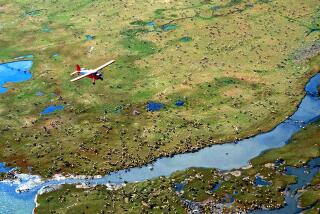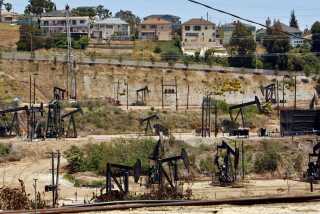Debate Over Alaska Oil
- Share via
The general tone of the series (“America’s Energy Frontier--Alaska, Oil and the Environment,” Part A, Sept. 15-16) painted a bleak picture of oil development in the Arctic, but in reality the oil industry has a good and improving environmental record on the North Slope.
The industry has given considerable attention to regional ecological concerns and strict environmental standards apply to oil field operations. The Department of the Interior and the Alaska Department of Fish and Game believe that new, state-of-the-art development in Arctic National Wildlife Refuge (ANWR) would not cause significant adverse impacts on wildlife. The effects of oil field development on caribou have been carefully studied by Alaska biologists who have documented a dramatic increase in caribou numbers at Prudhoe Bay since oil activities began.
Alaskans are fiercely protective of the refuge, especially its heart--located south of the area proposed for oil development. The heart of the refuge has been forever protected from development through an 8-million-acre wilderness designation. Alaska contains over 56 million acres of designated wilderness, and 92% of ANWR itself is closed to development.
A strong majority of Alaskans, including natives of the North Slope and residents of Kaktovik village, located in ANWR, support oil development on the Coastal Plain, the remaining 8% of the refuge set aside for potential energy development. If oil is discovered on the Coastal Plain, the area required for development would be somewhere between 5,000 and 12,000 acres, less than 1% of the refuge. Yet development here could contribute as much as 1 million barrels of oil a day for about 25 years--with production peaking just below 2 million barrels a day by the year 2005. By that time, 2 million barrels might constitute close to one-third of the nation’s domestic production.
What we don’t develop domestically will surely be imported from foreign producers operating under much weaker environmental controls.
CARL PORTMAN, Communications Director, Resource Development Council, Anchorage, Alaska
More to Read
Sign up for Essential California
The most important California stories and recommendations in your inbox every morning.
You may occasionally receive promotional content from the Los Angeles Times.













